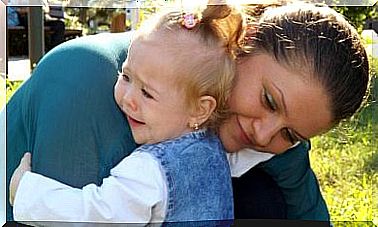My Child Is Afraid To Stay Overnight

It is very common for young children to be afraid to stay somewhere else. This fear starts around the age of two and can last until the age of six or eight – just like the fear of the dark or of being separated from one’s parents. Both are also common fears in young children.
This is a phase when children are very attached to their parents and constantly seek the security that only they can get from them or other close family members. This is why it is scary for them when they are not sleeping at home.
Children are very used to their daily routine and their environment. They are used to sleeping in their own rooms, with the same sleep routines. As a result, if you change their routine and your children have to sleep in a different location, it can create resistance in the little ones.
When children are prepared for the adventure of sleeping elsewhere, they can discover new ways to relate to other children when they start sharing games and experiences. In addition, this experience can boost your self-esteem.
What can you do if your child is afraid of staying somewhere else?
To make sleeping outside the home a fun adventure for kids, get the little ones to express their fears and ask you questions. Answer each one calmly.
Also, make sure your children are aware of all of the things they can do while they are alone, and do this to try to add to their excitement. This, in turn, can reduce their fear of sleeping elsewhere. Make sure to focus on what she likes best .

Easy communication with your child is important. But don’t assume that the problem will fix itself. Take control of the situation and encourage your children to prepare to spend the night away.
Don’t let your child avoid the situation. Hold on, however, and don’t let the little ones talk you out of the idea again. The whole thing will take your patience. So be patient and don’t put pressure on them, or you will only create more resistance.
Avoid comforting your children. If you tell your children that everything is fine, they will lose confidence in your opinion. On the other hand, you shouldn’t tell them what to do, either. Ask your children to make a plan to make new friends and enjoy fun activities.
The first night away from home: how do you manage your children?
It is a good idea to take your children to the friend’s house where they will be staying. This will help them make a transition and not be afraid.
Offer your children choices so they know they are not alone. Let them know that they can call you through the friend’s parents if they are uncomfortable or have problems. Or they can use their own phone if they have one.
We should mention at this point that there is no ideal age for a child to stay overnight. Children will decide for themselves at some point. Your children will then ask to go camping, stay with a friend, etc. However, remember that they should only go if they are self sufficient at home.
To help children get their first night away from home, improve their fitness, make them feel safe, and help them face their fears so they can overcome them. This is the only way to feel safe and to sleep outside the home.

What if they cry?
While they may love the idea of staying somewhere else, sometimes things don’t go smoothly when they don’t sleep at home. Then it is important not to overreact and to keep your worries under control. If you don’t, your children will notice that you are nervous and feel less safe too.
If your children can’t stop crying, it is a signal that they are not ready for the experience. Children take time to adapt to new situations. Avoid confronting them with something that feels traumatic, or they won’t overcome their fear of sleeping in the distance.
This means that your children will have to gradually break away from you. So wait until your children ask you to stay overnight, or at least don’t offer much resistance when it comes to sleeping away.
This experience will be beneficial for the little ones and help them develop their autonomy and social relationships. It will teach them to be more tolerant and share, as well as to be a better team player. These are invaluable values for your further life and your future.









